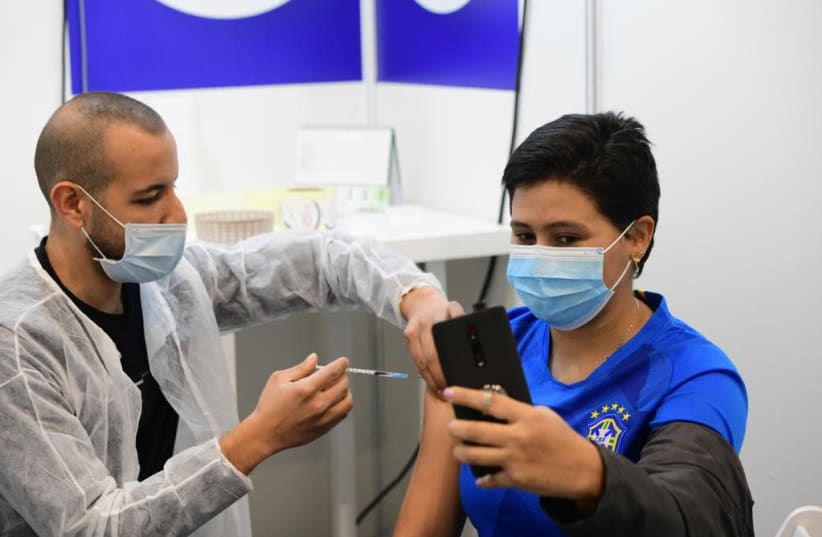In addition, the poll also asked respondents who have not yet received any vaccine dose whether they plan on receiving it in the future.
The poll found that 28% of those who define themselves as Center-Left and 27% who define themselves as right wing answered that they intend to get vaccinated, 38% of Center-Left and 44% of right-wing respondents are worried about potential side effects, and 32% of Center-Left answered that they are unsure about the effectiveness of the vaccine, compared to 28% of the right wing.
On the topic of the government's decision to allow only those with "green passports" to enter cultural events and gyms as they reopen, 31% said they would now likely take the vaccine, while 46% said they wouldn't.
The split between the Center-Left and the Right on the topic shows the Right being more confident in their stances on either side of the issue, with 12% saying they would definitely get the vaccine, 21% saying they think they will get the vaccine, 19% saying they think they won't receive it, and 31% who said they definitely wouldn't get the vaccine.
Meanwhile, of those who define themselves as Center-Left appeared less decisive, as 7% said they would definitely get the vaccine, 22% said they think they will get it, 26% said they think they won't get it, and 17% said they would definitely not take it.
While the differences between the Right and the Left do not seem to be very significant, the most striking split seems to be along ethnic and religious lines, with ultra-Orthodox and Arabic population groups on one side, and secular and conservative Jewish population groups on the other.
According to Health Ministry data published on Monday, the Haredi-majority city of Bnei Brak, which has been one of the largest outbreak centers in the country since the pandemic began, had only vaccinated 10% of its population with a second dose.Other ultra-Orthodox cities with low vaccination rates include Beit Shemesh, which has vaccinated 13% of its residents, and Modi'in Illit, which has vaccinated only 6% of its population.
Arab cities such as Umm el-Fahm have and Yarka have also had troubles with vaccination, as 14% and 10%, respectively, of each city's residents have been vaccinated with both vaccine doses so far.
By comparison, Haifa and Tel Aviv have vaccinated 36% and 34% of their respective populations with a second dose of the coronavirus vaccine.
The town with the highest percentage of vaccinated individuals was Tel Mond, with 68% of its population already vaccinated with both doses of the COVID-19 vaccine.
